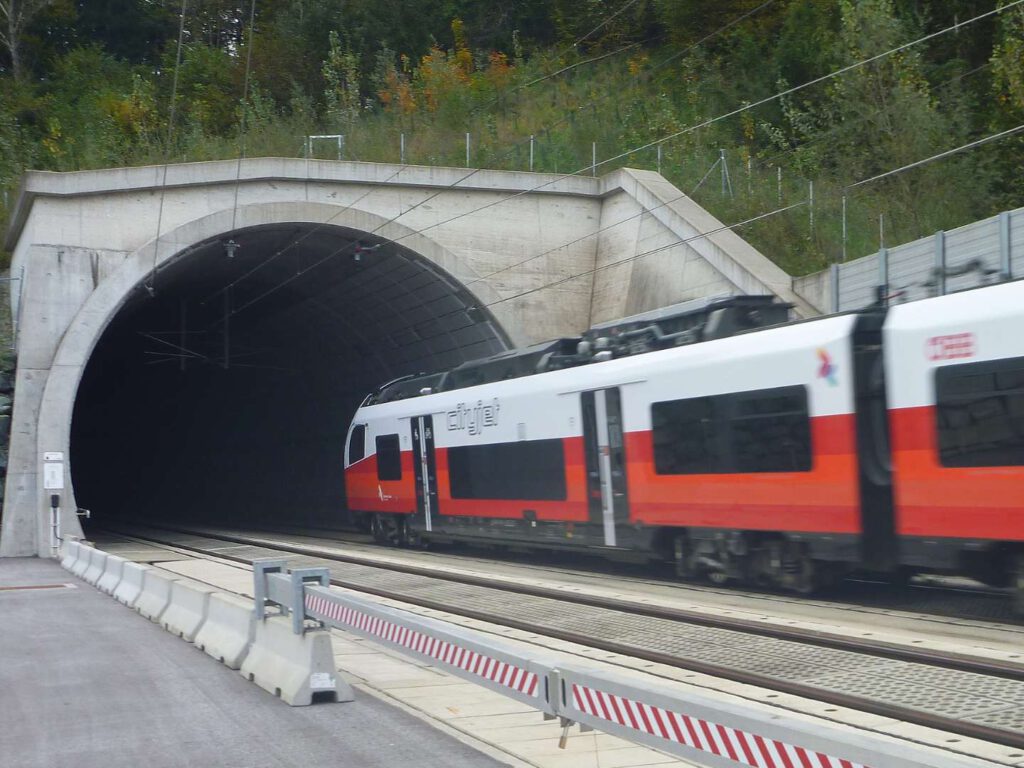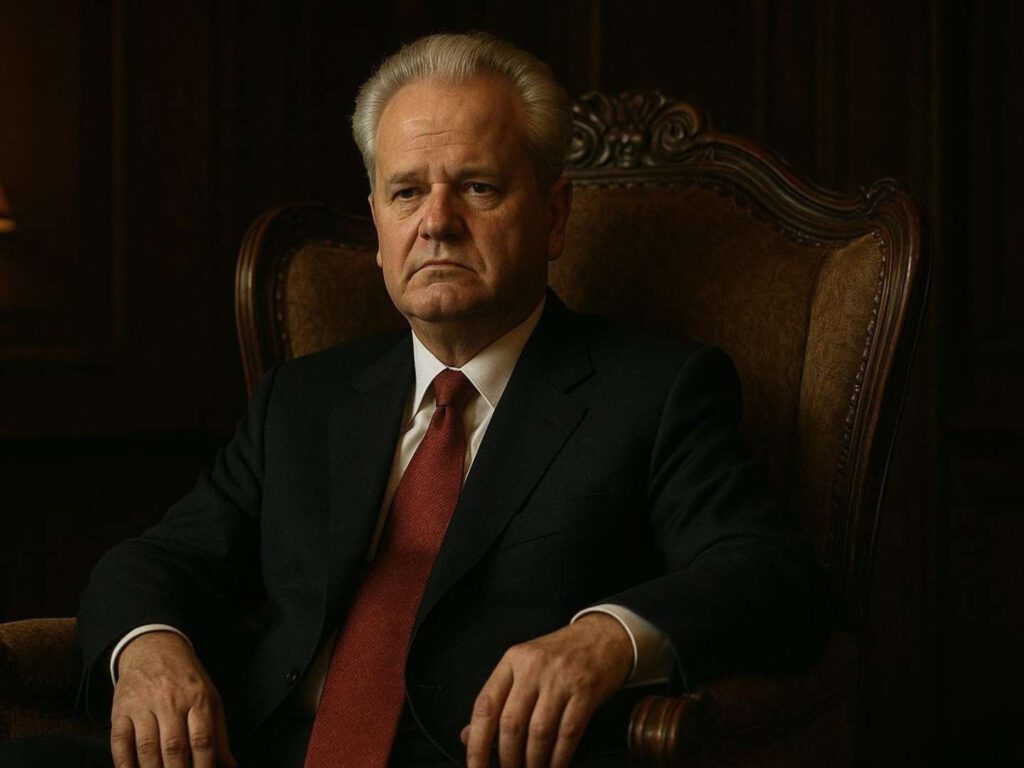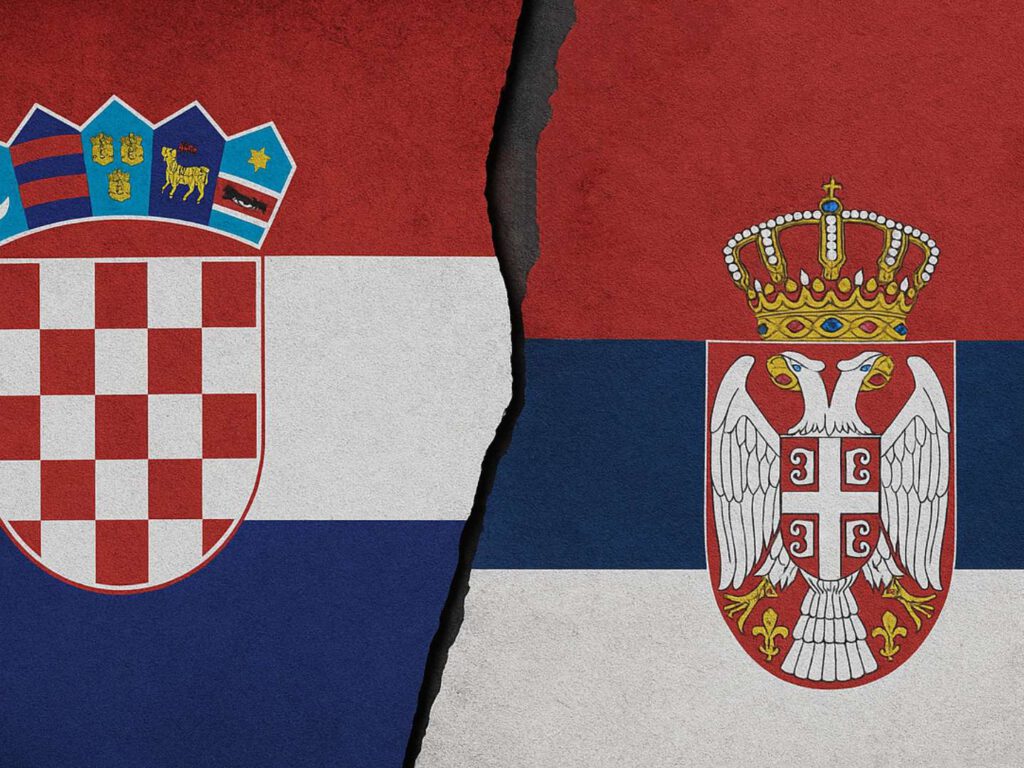Modes of Solidarity and Resistance Among Delivery Drivers in Tbilisi
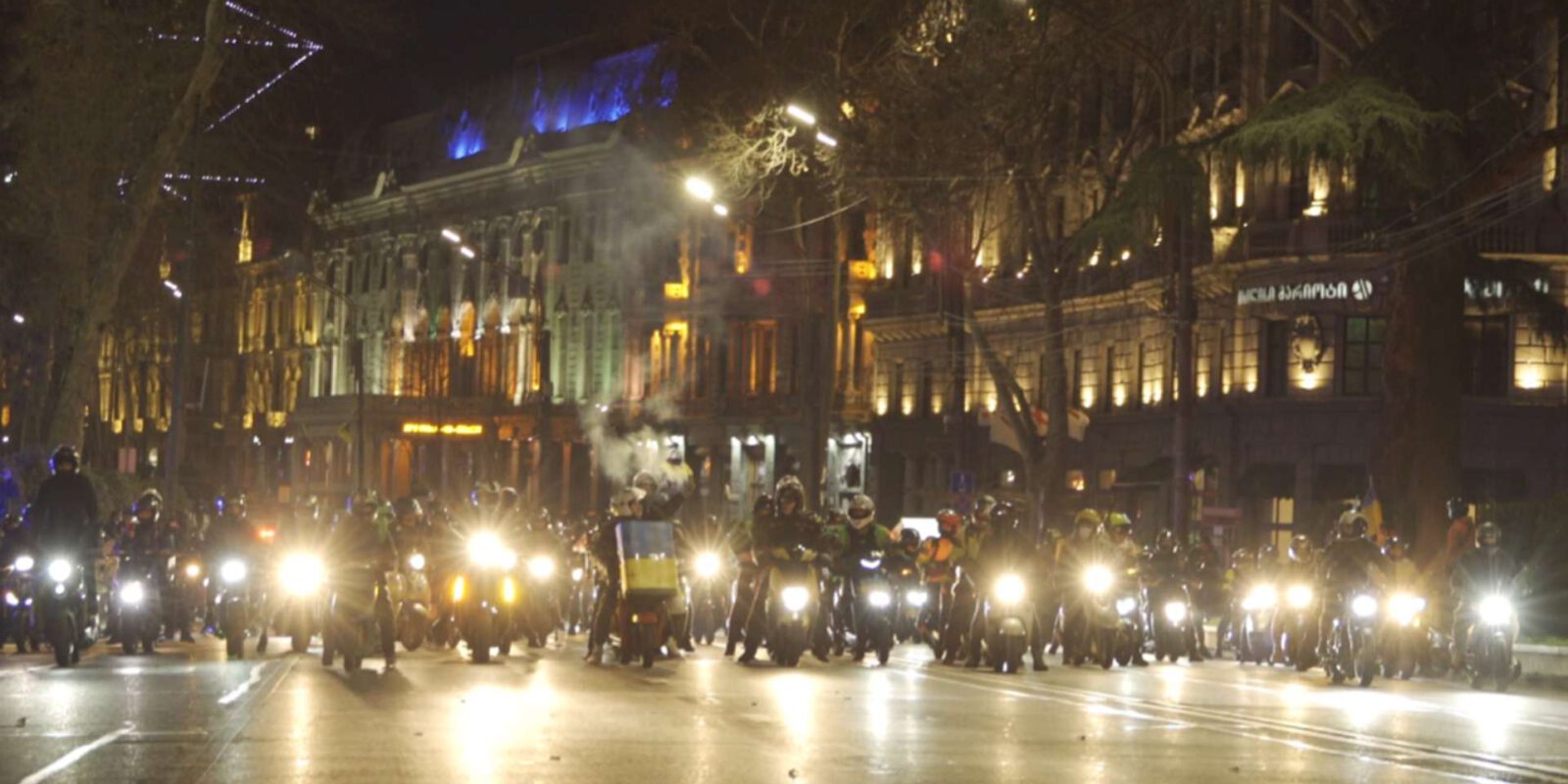
On February 5, 2023, food delivery drivers organized a strike in the center of Tbilisi, Georgia, protesting the labor conditions and wage system proposed by the Helsinki-based delivery company Wolt. To show solidarity, the couriers later joined the taxi drivers who were also opposing their current working conditions in a different location. This has not been the first time that the food delivery couriers in Tbilisi mobilized to protest their labor rights or to join other social groups to express their solidarity. Yet, the formation of this visible and powerful movement did not happen overnight.
The delivery service became increasingly popular in the major cities of Georgia after the appearance of big quick-commerce companies such as Glovo and Wolt in 2018 and, later, Bolt Food in 2020. The high demand delivery services, combined with the extreme rise in the unemployment rate in Georgia since February 2020, pushed the youth to join the newly emerged gig economy sector. The rise of the delivery business in Georgia did not only open up new workplaces for the young workforce but also a new social space for collective mobilization and activism. While the job allowed individuals to have flexible working hours and a decent income, the system suddenly revealed its problems. Through directing a short documentary film, Your Delivery Is On Its Way (2022), I had a chance to follow the personal stories of five couriers – Elene, Temo, Irakli, Misha and Rati, and their experiences of labor, resistance and solidarity. Multiple conversations with them during and after protests give us insight into the emergence of one of the dynamic and loud social movements in Georgia.
Stay home! Your delivery is on its way!
“I felt like a hero“, Elene said while remembering the first months of the COVID-19 pandemic. With the national lockdowns, the streets of Tbilisi now only belonged to the police cars, ambulances and couriers. It was soon clear that the delivery service became as vital as the other two. At the same time, courier work became more precarious than ever: the workers often had to deliver food and medicine to the hospitals and quarantine points, increasing their anxiety and risk of getting infected by the unknown virus at that time.
Yet, according to Misha, he was proud of doing his job even though it was dangerous. He shared a story of how he helped a woman by not only delivering medicine for her newborn baby during the curfew but also making it possible for her to talk to the pharmacist to receive medical advice: “It was a very emotional and proud moment for me. She was a new mother and was unsure how to act when her newborn had a high fever. Since she could not leave the house due to the lockdown, I was there to help her.” Misha even started a social campaign among couriers on Facebook – “I stay at work so that you can stay at home!” Later, Glovo management in Georgia hired a graphic designer to paint graffiti on the streets of Tbilisi, celebrating the courier’s work during the pandemic and portraying them as superheroes by saying: “Stay home! Your delivery is on its way!”
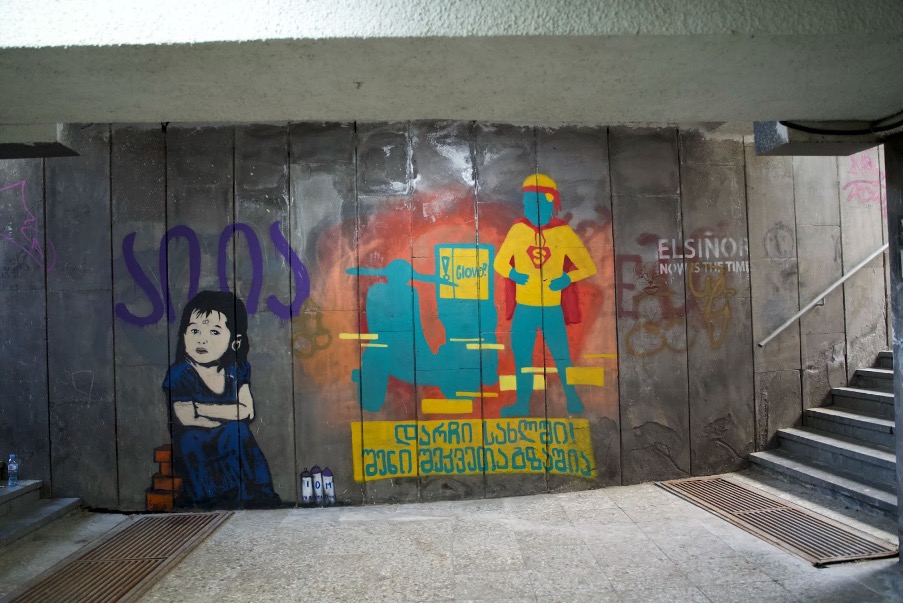
Graffiti in Tbilisi, 2020: “Stay Home! Your Delivery Is On Its Way”.
Eventually, the couriers felt appreciated by the public during the pandemic. According to some of the couriers, the people slowly started to realize the necessity of delivery service in their everyday life and acknowledged their hard labor. “It was quite difficult to protest something in the past; let’s say we did not like some of the labor conditions… we could not just simply gather and protest. But after the pandemic, as people saw value in our work and started to support us, we became more confident and it was easier to protest something we did not like“, explained Elene while talking about the significance of the pandemic and its role in mobilizing the couriers later on.
While the COVID-19 pandemic played a crucial role in popularizing the delivery industry, opening new workplaces for young people and stimulating the collective identity of the delivery drivers in Georgia, it also caused a number of problems that further fueled their mobilization. “The pandemic also resulted in high demand on couriers and although it was not easy, we did our best and somehow managed to maintain the balance between the supply and demand. And at that very moment, the company decided to cut our wages and cancel our bonus system. The company changed its payment system during the worst time possible!” – said Misha.
In parallel to celebrating the heroic labor of their couriers in the public eye, the management of the large delivery companies decided to reduce their average monthly income. Despite months of negotiations between the couriers and the companies, the structural changes were not withdrawn. March 2021 was the beginning of the waves of strikes among couriers from different delivery companies. In the following years, similar strikes started to emerge in other countries such as Azerbaijan, Malta, Turkey, Austria, Spain and Israel, demanding the improvement of their working conditions. However, the courier protests in Tbilisi soon evolved into something more wide-ranging than only labor rights.
“The Noise Makes Us Stronger”
On February 20, 2022, a group of food delivery couriers gathered in front of the Sports Palace in Tbilisi to protest against the rising prices of gas, food, medicine and other products in Georgia. A random woman passing by asked me what was going on there. After explaining the purpose of the protest, the woman proudly reacted: “Well done, boys! We should all be protesting!”
Even after the lift of the national lockdown, courier drivers were seen everywhere in the streets of Tbilisi. Two-wheeled vehicles suddenly became an inseparable attribute of the Tbilisi traffic. What’s more, they started to appear in other socio-political protest scenes as well. For instance, in May 2021, the couriers organized a honking rally to support the protesters resisting the construction of the Namakhvani Hydropower Plant. At the end of the same year, the couriers once again mobilized to protest the existing mandatory COVID-19 vaccination system requiring them to be vaccinated in order to enter public facilities.
While the constitution of the ongoing protests usually was not homogeneous – not every courier joined each solidarity protest, the rally that was organized in February 2022 to support Ukraine after the Russian invasion was one of the loudest and most demonstrative. The mobilization of couriers was not directed at their labor rights or the ongoing political and economic circumstances in the country anymore but at larger geopolitical processes.
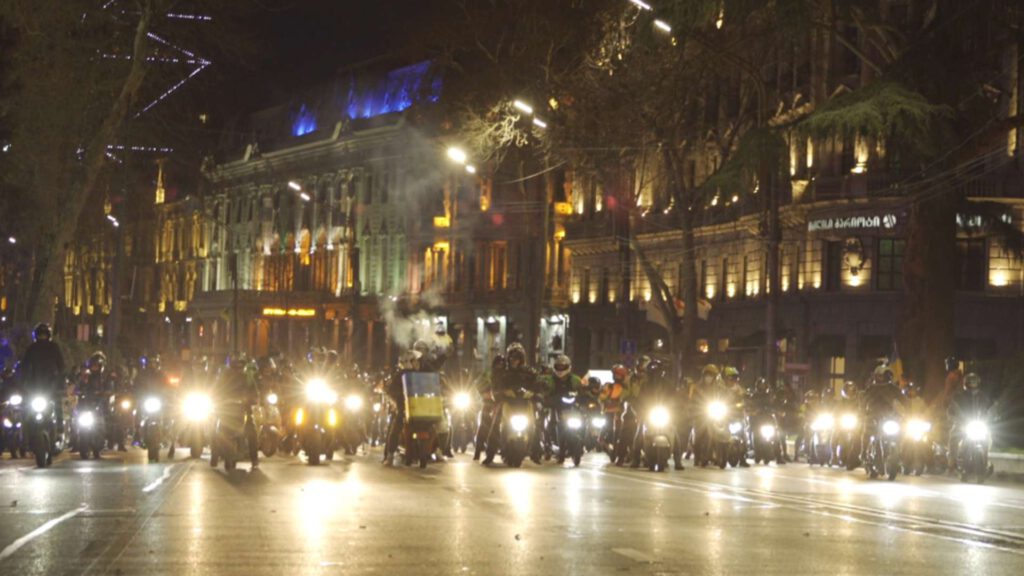
Solidarity rally for Ukraine in Tbilisi. Scene from the film Your Delivery Is on Its Way (2022).
From Strikes to Large-Scale Mobilizations
The case of Georgian couriers demonstrates how a specific group, formed during a time of crisis, can mobilize under certain conditions and how their agenda might transform into something bigger over time. After getting to know them better and attending several protests with them, one question still seemed unanswered to me: why couriers? Why are they the ones appearing in every large social protest in Tbilisi?
There are two sides to the answer. Firstly, as the couriers themselves explained, the delivery industry created a new social space for them to interact and share opinions with one another on various topics when, for instance, they are waiting for their orders to be prepared in front of different restaurants. “I made a lot of close friends through being a courier. One of them is actually going to be my best man at my wedding,” – Rati told me. Couriers also highlighted the remarkable sense of solidarity they have for one another; no matter what happens, they would never leave each other in a difficult situation, especially if one of them got into a traffic accident or their moped broke down. In a sense, the high precarity of their job intensified their need to look out for each other.
Secondly, the fact that they are mobile and cacophonous makes them more visible and creates a certain level of groupness. While reflecting on the solidarity rally for Ukraine, Elene said, “the noise makes us stronger. We can do many things with this noise, not only to show solidarity. We can actually change something. And I hope we will.” The honking and motor sounds became the specialty of courier drivers’ activism in Tbilisi that continues to this day.
NANA KOBIDZE is a social anthropologist from Tbilisi, Georgia, currently pursuing her PhD degree in Sociology and Social Anthropology at Central European University in Vienna. Her research interests include mobility, social movements, governmentality and nation-building in the South Caucasus. Aside from social research, Nana has directed ethnographic filmmaking projects.
